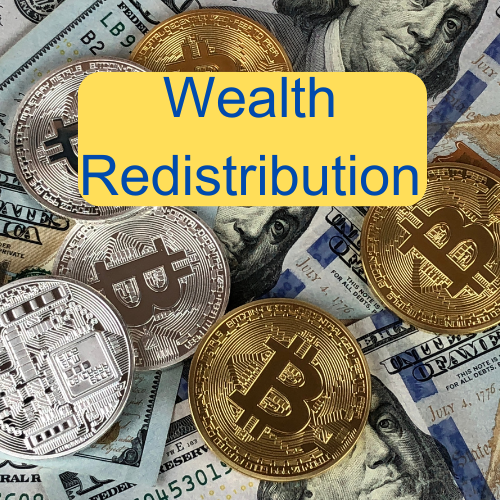In the complex socio-economic policy tapestry, wealth redistribution emerges as one of the most debated, intriguing, and polarizing subjects. Wealth redistribution refers to reallocating wealth from specific individuals or groups to others, typically through progressive taxation, welfare programs, and public services. While the notion is theoretically simple—aiming to create a more equitable society—the practical implications, effectiveness, and impacts raise myriad questions. Ultimately, one central question prevails: Who is the real winner of wealth redistribution?
Understanding Wealth Redistribution
The historical roots of wealth redistribution are deep and varied, intertwined with the rise of modern nation-states and the spread of democratic ideals. Philosophers like John Rawls proposed that a just society is one where inequalities are structured to benefit the least advantaged. This inspired social policies across numerous democracies, aiming to balance capitalistic pursuits with social justice.
Wealth redistribution today mainly functions through government intervention. Progressive taxation, for example, imposes higher tax rates on individuals with higher incomes, thereby generating revenue that can be redistributed through public services and welfare initiatives. Social security, unemployment benefits, and food assistance programs are typical elements in redistribution schemes designed to lift marginalized populations out of poverty and provide equal opportunities.
The Mechanics Behind Wealth Redistribution
The effectiveness of wealth redistribution hinges on intricate economic and political mechanisms. Government considerations surrounding tax policy, public expenditure, and social welfare funding shape redistribution strategies. Governments negotiate these aspects amidst economic challenges such as inflation, unemployment, and fiscal deficits, striving to strike a balance that encourages growth while fostering inclusivity.
Moreover, wealth redistribution does not solely depend on taxation but also encompasses policies that tackle structural inequalities. This includes investments in education, healthcare, housing, and employment opportunities, which aim to break the cycles of poverty and empower individuals to achieve self-sufficiency.
The Stakeholders: Beneficiaries and Opposition
The conversation around winners and losers in wealth redistribution often centers on diverse societal actors.
- Beneficiaries: At first glance, low-income individuals and families appear as the immediate winners. Redistribution policies aim to support these groups, helping them attain a standard of living that meets basic human needs. Public investment in education also opens opportunities for future generations, enabling social mobility. By fostering a healthier, better-educated workforce, society may enjoy long-term benefits, such as higher productivity and decreased crime.
- The Middle Class: Often caught in the policy crossfire, the middle class may experience both positive and negative impacts of wealth redistribution. On the one hand, they may benefit from public services like healthcare and education; on the other, they may bear higher tax burdens, which can provoke unfairness and financial insecurity.
- High-Income Earners: Typically, the most vocal opposition to redistribution arises from the high-income earners, who face significant tax obligations. Their argument is grounded in the belief that redistributive policies disincentivize hard work, innovation, and individual success.
Economic Impacts and Growth Considerations
A significant point of contention in the debate on wealth redistribution is its impact on economic growth. Proponents argue that by reducing inequality, redistribution can lead to more stable and prosperous societies. When low-income individuals have more disposable income, they tend to spend it on goods and services, stimulating demand and encouraging business expansion.
Conversely, critics assert that excessive redistribution can stifle investment incentives and entrepreneurial ventures. They argue that the wealth creation process is best left unchecked and that the trickle-down effects of wealth accumulation can drive broader prosperity, a view aligned with supply-side economics.
The real-world effects of redistribution vary based on implementation, context, and the targeted outcomes. Countries with robust redistributive policies, like the Nordic nations, often report high standards of living, relatively low levels of poverty, and sustained economic growth. In contrast, ineffective or mismanaged policies can sometimes result in dependency, inefficiency, and fiscal strain.
Social Implications and Equity Concerns of Wealth Distribution
Beyond economic metrics, wealth redistribution resonates deeply with social and ethical dimensions. The aspiration to build a fairer society confronts deeply ingrained disparities of race, gender, and historical injustices. Redistributive policies could be leveraged to close these gaps, fostering community and shared destiny across all societal layers.
Critics caution against dependency, arguing that reliance on welfare can undermine personal achievement and social mobility aspirations. They emphasize the importance of fostering a culture of empowerment where redistributive policies are paired with opportunities to develop self-reliance through education and skill development.
Conclusion: A Balancing Act
Determining the real winner in wealth redistribution requires a nuanced approach considering diverse perspectives and metrics beyond mere economic gain. True success in wealth redistribution reflects a society where economic inequality diminishes, social cohesion strengthens, and all individuals, regardless of their starting point, have genuine opportunities to thrive.
Designing policies that achieve this balance is neither simple nor uniform; it demands careful deliberation, a willingness to innovate, and a steadfast commitment to justice and inclusivity. While the debate continues, the ultimate winners may be societies that succeed in marrying growth with equity, leading to enduring prosperity—not only for a select few but for all.

